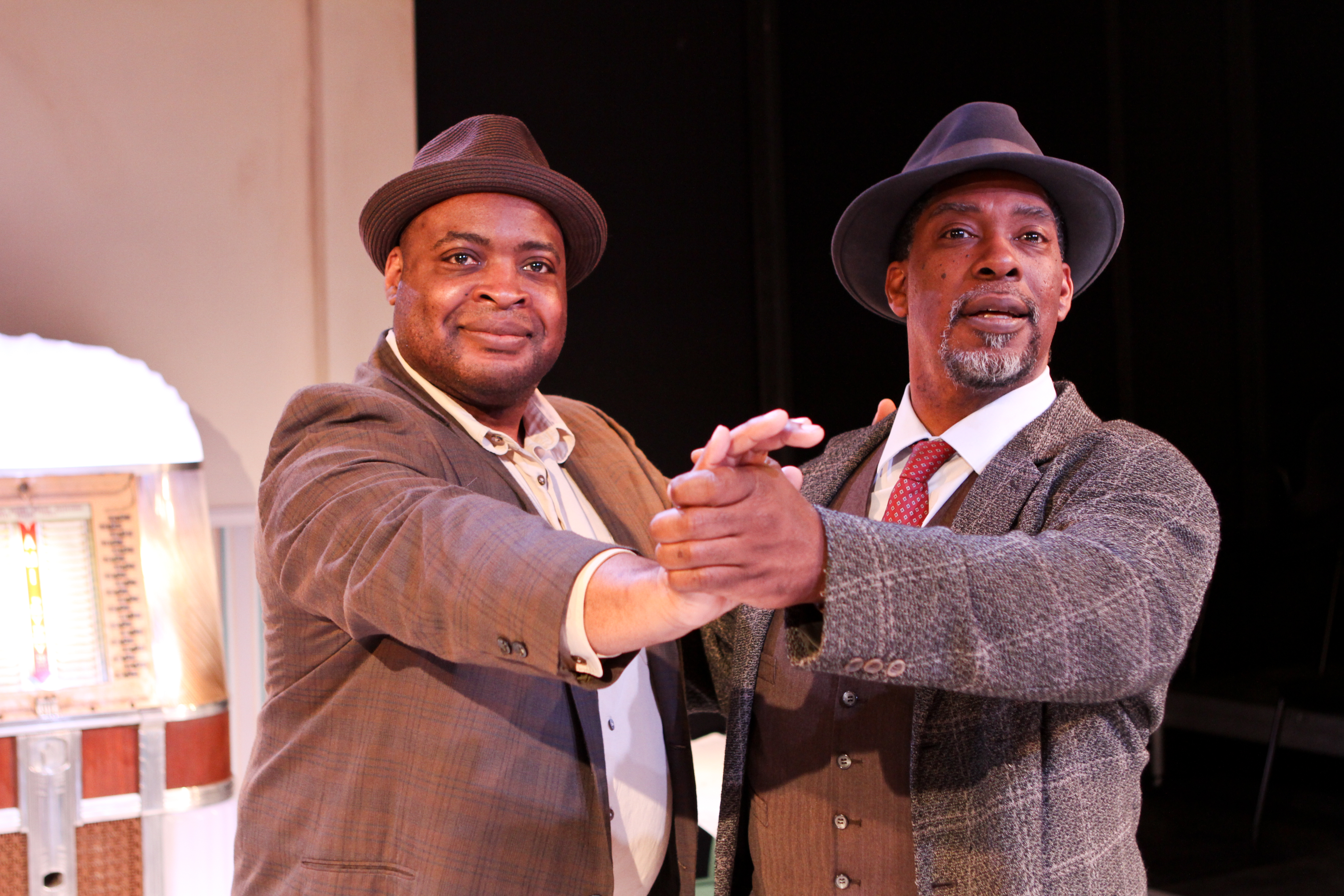“Master Harold” . . . and the Boys
West of Lenin, 203 N. 36th St., 352-1777, westoflenin.com. $12–$20. 8 p.m. Thurs.–Sat., 2 p.m. Sun. Ends April 21.
Athol Fugard’s autobiographical drama about two middle-aged black men in 1950 South Africa and their relationship with the white child of their employer is a delicate powder keg that needs to go off. In its best airings, including this excellent revival, it does just that. Three decades after its 1982 premiere (which I happened to see and be seared by), it is capable of just as much impact, as though apartheid were still with us. AJ Epstein’s West of Lenin production, directed by M. Burke Walker (a founder of Empty Space Theater), detonates even more shatteringly than I recall the original doing, laying waste to the hopes of the audience.
Sam (G. Valmont Thomas) and Willie (Kevin Warren) have worked for Harold’s mother in Port Elizabeth since Harold (or “Hally”) was a tot—lately in the family’s tea room. As graceful Sam and clumsy Willie prepare to compete in a ballroom-dance competition, late-adolescent Hally (James Lindsay) badgers them with pretentious banter between bouts of family crisis about his father coming home from the hospital. Clearly the two “boys” have been his real father figures, particularly Sam. But now that Hally’s on the verge of adulthood himself, his own repressed shame, anger, and self-loathing transform into vicious racism before our eyes on Catherine Cornell’s period diner set, sandwiched between two stands of audience seating. (Sit on the near side if you can; at key junctures, only half the audience can see the cast, creating a visceral sense of separate-but-not-equal.)
Lindsay is perfect as baby-like Hally; his small eyes seem needy and peevish even as his lanky body affects the languor of privilege. As Thomas’ Sam subtly wrests control of the story, his earlier jovial subjugation hardens into a weapon; his resonant moral authority assumes a dangerous edge. Meanwhile, Warren’s simpler Willie looks on in terror. By this point, several audience members were sobbing. The final recovery of equilibrium comes at a high cost to everybody, like the necessary cleanup after a bombing, and it feels more emotionally informative than a hundred books on apartheid. Off goes Epstein’s galaxy of globe lights, on comes the jukebox’s pink glow—as dreamy as a future that can’t come soon enough.
stage@seattleweekly.com








